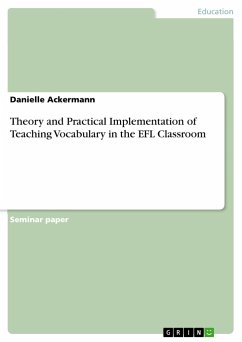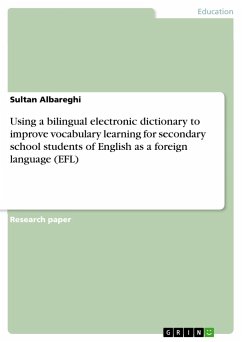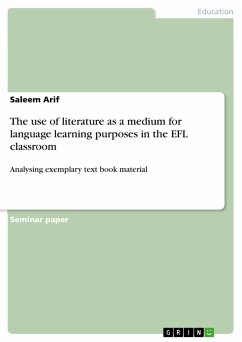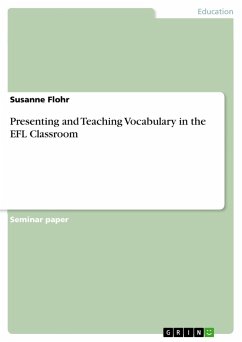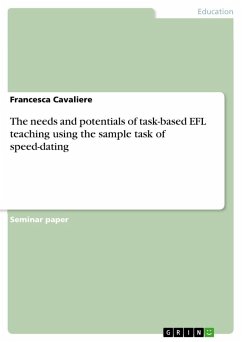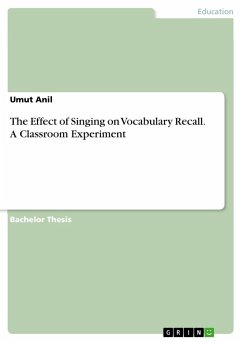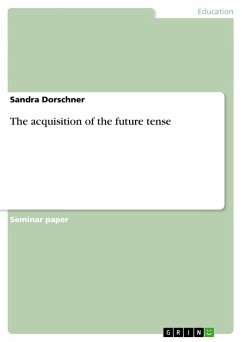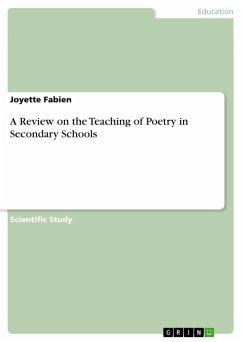Seminar paper from the year 2011 in the subject Didactics - English - Pedagogy, Literature Studies, grade: 1,7, University of Frankfurt (Main), language: English, abstract: Conventionally, the teaching of vocabulary in the EFL classroom was mostly incidental and limited to presenting new words as they appeared in reading or sometimes listening texts. This indirect teaching method assumes that vocabulary expansion takes place through the practice of other language skills like reading or listening, but in fact this does not ensure vocabulary expansion. Nowadays it is widely accepted that vocabulary teaching should form a part of the syllabus and that it should be taught well-planned and on a regular basis. Some authors, led by Lewis (1993) even state that vocabulary should be the main focus of language teaching, because 'language consists of grammaticalised lexis, not lexicalised grammar'. This underlines the importance of vocabulary as being basic to communication.From my point of view learners will be unable to participate in a conversation, if they do not recognise the meaning of keywords even though they know the morphology and syntax. On the other hand, I think that grammar is equally important in the EFL classroom and therefore vocabulary should not be substituted for grammar teaching. Consequentially, both should be part of teaching English as a foreign language and what is even more important they should be presented as being connected with each other. This can be seen when we have a look at what we need to use words properly in a communicative situation. The three language properties are form, meaning and context that are interrelated. The pupils do not only have to memorize the new word itself, but they also have to keep in mind morphology and syntax, the cultural meaning and they have to know the context in which you can use the word in an appropriate way. As this is a difficult job for both, pupils and teachers, I would like to go into different teaching methods that should be considered when teaching vocabularies in the EFL classroom. Therefore I am going to look at the mental lexicon that helps us to understand how words are stored in our brains. Consequentially, I would like to dwell on the three major phases in the teaching of vocabulary, before I am going to deal with further helpful hints and examples for us as future teachers as well as for pupils in greater detail. Finally I would like to examine the whole topic again to state my ultimate opinion in my conclusion.
Hinweis: Dieser Artikel kann nur an eine deutsche Lieferadresse ausgeliefert werden.
Hinweis: Dieser Artikel kann nur an eine deutsche Lieferadresse ausgeliefert werden.

